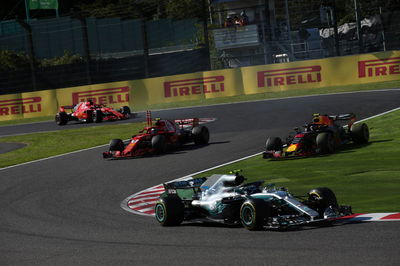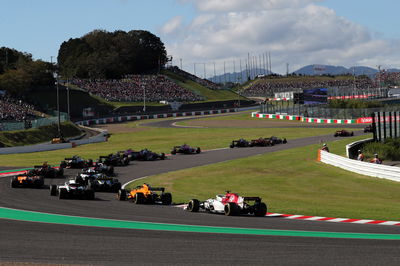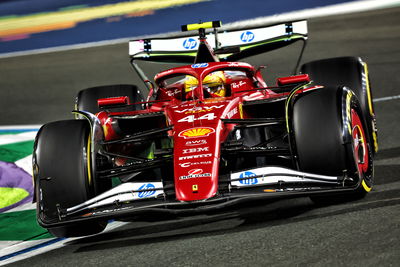Whiting: Verstappen’s chicane-cut comment ‘silly’
Formula 1 race director Charlie Whiting believes Max Verstappen’s comments about Valtteri Bottas cutting the final chicane in the Japanese Grand Prix were “silly”.
The Mercedes driver skipped across the artificial grass after locking-up into the chicane in the closing stages of the race while under pressure from Verstappen - who had earlier received a five-second time penalty for forcing Kimi Raikkonen off track following a wide moment at the same corner.

Formula 1 race director Charlie Whiting believes Max Verstappen’s comments about Valtteri Bottas cutting the final chicane in the Japanese Grand Prix were “silly”.
The Mercedes driver skipped across the artificial grass after locking-up into the chicane in the closing stages of the race while under pressure from Verstappen - who had earlier received a five-second time penalty for forcing Kimi Raikkonen off track following a wide moment at the same corner.
Bottas re-joined ahead of the Red Bull driver and went on to finish second, prompting Verstappen to tell Sky Sports F1: “If I get a five-second penalty for that [Raikkonen incident] then next time I’ll just cut the track and do it like Valtteri”.
When asked about Verstappen’s remark in his post-race session, Whiting, who confirmed the incident was not looked at, replied: “That’s a rather silly thing to say.
“It was quite clear that Valtteri locked up, made a mistake. We looked at the mini sector time, and he lost half a second, he dropped half a second to Max.
“He wasn’t being threatened, it’s not that he cut the corner and stayed in front by virtue of cutting the chicane. It was just a mistake.”
The Suzuka race stewards judged the Dutchman had returned to the track in an unsafe manner in his incident with Raikkonen, which Whiting described as a “clear” penalty.
“You’re required to rejoin safely and Kimi was there and he pushed him off the track. I think that was a fairly straightforward one for the stewards,” he added.
“I think having cut the chicane, he would have struggled to stay in front.
“If he had stayed in front, we may have had to look at asking him to give the place, as otherwise he would have conceded that pace.”












